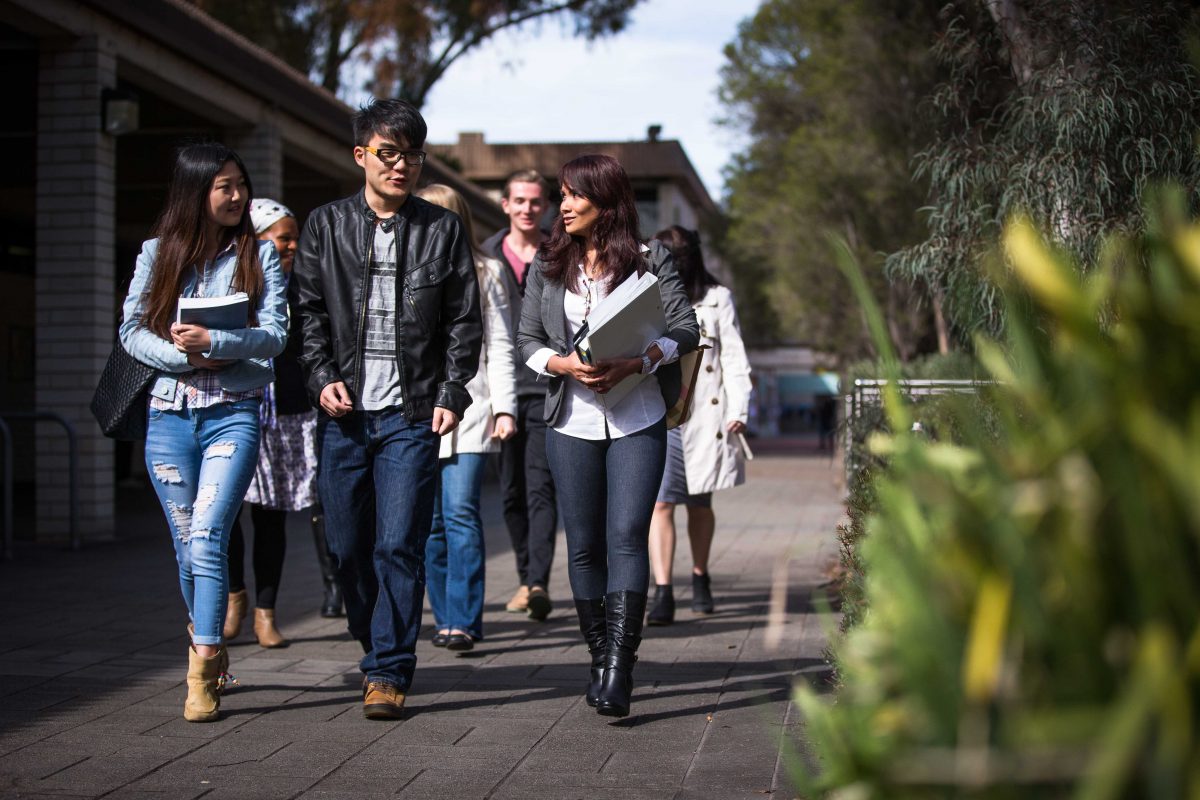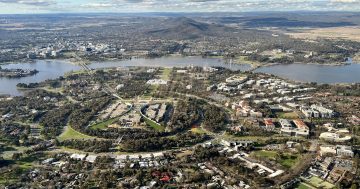
The University of Canberra’s research capabilities position it to assist the private sector and government. Photo: Supplied.
University of Canberra and the peak body for the region’s private sector have announced a partnership to facilitate informed government policies in support of local businesses.
With submissions to the ACT Government’s 2023/24 budget closing soon, the university has joined with the Canberra Business Chamber to call for more government investment in research and data for businesses and economic development in the Territory.
The Chamber and the university want the ACT Government to collaborate with them on gathering valuable insights into the challenges faced by organisations and industry, technology needs, preparation for future industry changes, crisis management, and wellness indicators for owners, staff and consumers.
The Chamber’s incumbent CEO Graham Catt said better data was needed on how the ACT business community operated, the issues affecting it and what policy tools would assist private sector growth in order to support the lifeblood of the economy.
“This critical research, delivered through a genuine partnership between business, government and the university, will help us understand what policy and external factors have the biggest impact on business success and failure,” he said.
“That will make a real difference to the 34,000 small businesses already active in the ACT, to jobs creation, and to our economy and community.”
Mr Catt said one key factor that has driven the call is the longevity of the Territory’s new businesses.
“In the ACT, every year we can see we’ve got one of the highest rates of business formation in the country, but also some of the highest rates of closure,” he said.
“Gathering data will help us understand the drivers behind that. What can we do to ensure businesses have every chance of success in Canberra? If there are factors unique to the ACT that contribute to those closures, what can we do in our policies to change that?”

Canberra Business Chamber CEO Graham Catt said better data was needed to support ACT businesses. Photo: Canberra Business Chamber.
Mr Catt’s other concern was the lack of tracking through data, the impact of policy changes or government initiatives.
“We need to understand not just the impact of external factors like COVID and lockdown and fires and smoke on our businesses, but policy decisions and changes, and how they impact business confidence, profitability and growth.
“Data lets us track that objectively so we can help position our businesses not just to start, but to grow and thrive.”
Head of the Canberra Business School Professor Lorne Cummings said research-driven data would enable government to better understand the needs of local businesses, which in turn would allow it to develop more informed policies, and to understand the impact of these policies.
“Good research is critical for the success of any government policy or service,” he said.
“A deeper relationship between the higher education, business and public sectors helps ensure that government decisions are better calibrated. The formulation of government policy, and the consequent allocation of public funds, should always be reinforced by research from stakeholders that are ultimately affected by these decisions.”
Professor Cummings cited labour force deficiencies as an example.
“We hear from local businesses, particularly within the agriculture, hospitality and tourism sectors, of ongoing labour force shortages, which if not addressed can lead to decline on a range of metrics. Research that identifies this should directly feed into government policies that seek to alleviate the problem,” he said.
“For example, there are many pensioners with limited savings, many of whom would like to work more but are disadvantaged because of the aged pension income test. Government policy is critical to alleviating disincentives and harnessing the potential for this demographic to contribute to the workforce.
“This would not only partially address workforce shortages, but there are the economic and social benefits of increased employment. We unlock older Australians who already possess a wealth of knowledge and experience, who become more engaged, which is good for their own financial and social wellbeing and sense of worth. This has a flow on effect to the productivity and wellbeing of the nation overall. It’s all cyclical.
“Higher education, business and government institutions and organisations should be able to reinforce each another. We will always get the best overall outcomes when we work together.”





















